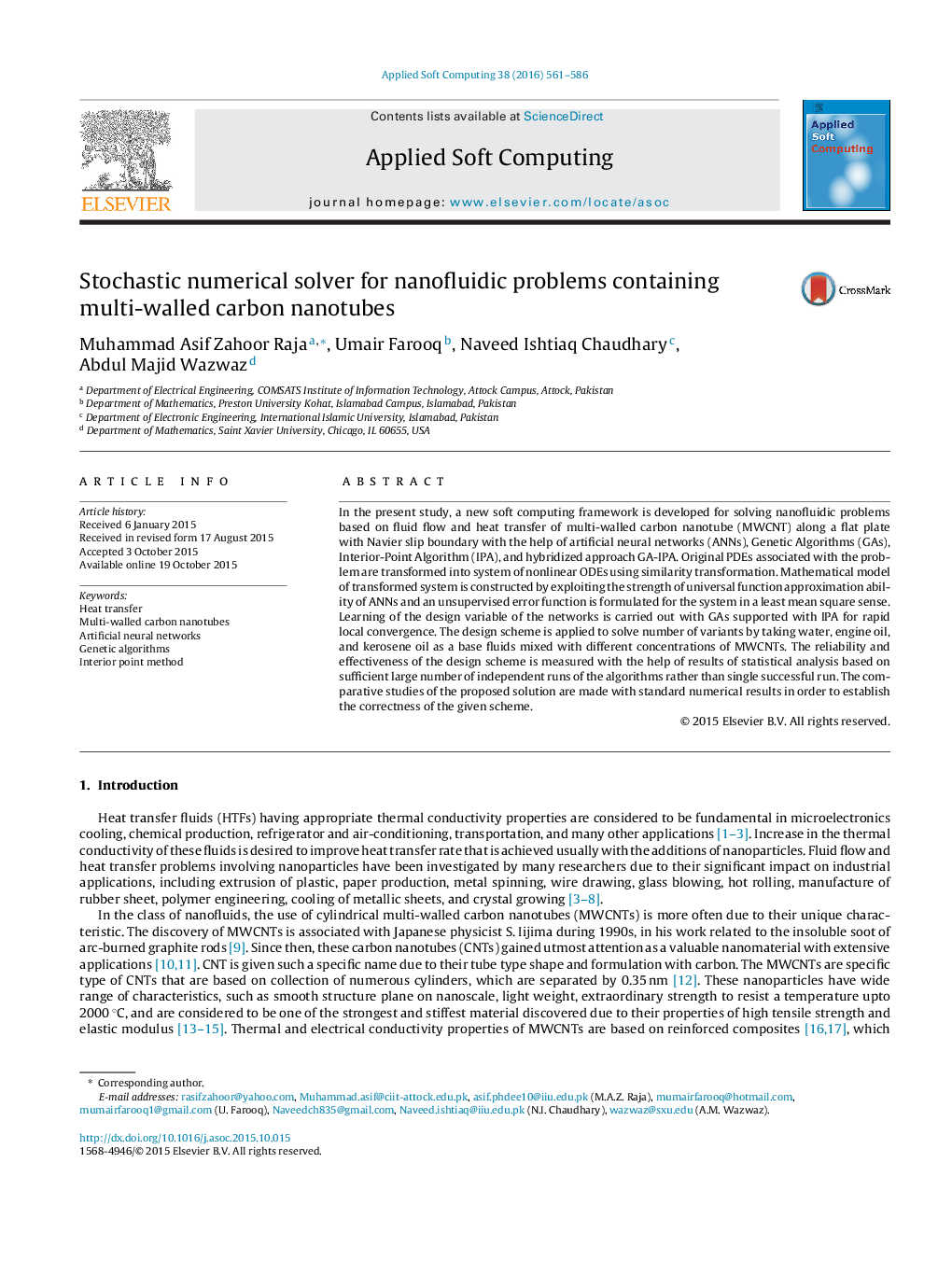| Article ID | Journal | Published Year | Pages | File Type |
|---|---|---|---|---|
| 494885 | Applied Soft Computing | 2016 | 26 Pages |
•Novel design of unsupervised ANNs for solving nanofluidic problems in mechanics.•Hybrid computing GA-IPA is exploited for finding design parameters of networks.•Design scheme is tested effectively on variant fluid flow and heat transfer scenarios.•Correctness of scheme is verified by closely matched results from standard solutions.•Statistical performance indices validate consistent accuracy and convergence.
In the present study, a new soft computing framework is developed for solving nanofluidic problems based on fluid flow and heat transfer of multi-walled carbon nanotube (MWCNT) along a flat plate with Navier slip boundary with the help of artificial neural networks (ANNs), Genetic Algorithms (GAs), Interior-Point Algorithm (IPA), and hybridized approach GA-IPA. Original PDEs associated with the problem are transformed into system of nonlinear ODEs using similarity transformation. Mathematical model of transformed system is constructed by exploiting the strength of universal function approximation ability of ANNs and an unsupervised error function is formulated for the system in a least mean square sense. Learning of the design variable of the networks is carried out with GAs supported with IPA for rapid local convergence. The design scheme is applied to solve number of variants by taking water, engine oil, and kerosene oil as a base fluids mixed with different concentrations of MWCNTs. The reliability and effectiveness of the design scheme is measured with the help of results of statistical analysis based on sufficient large number of independent runs of the algorithms rather than single successful run. The comparative studies of the proposed solution are made with standard numerical results in order to establish the correctness of the given scheme.
Graphical abstractFigure optionsDownload full-size imageDownload as PowerPoint slide
